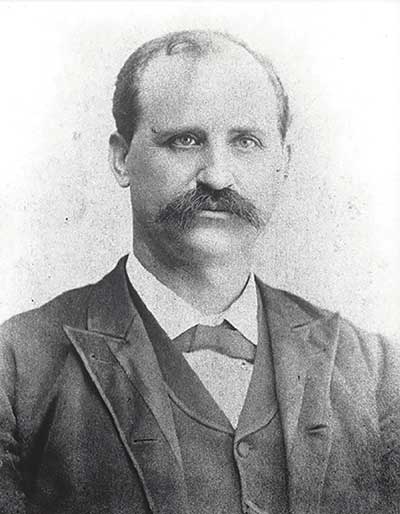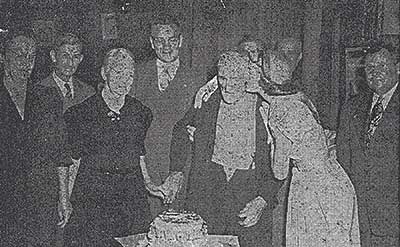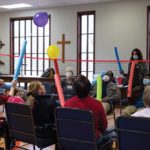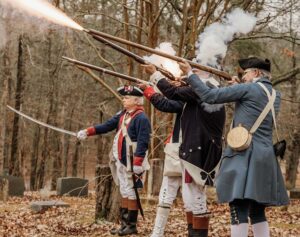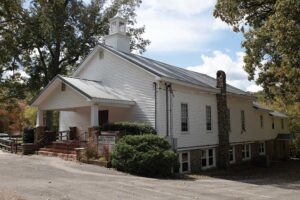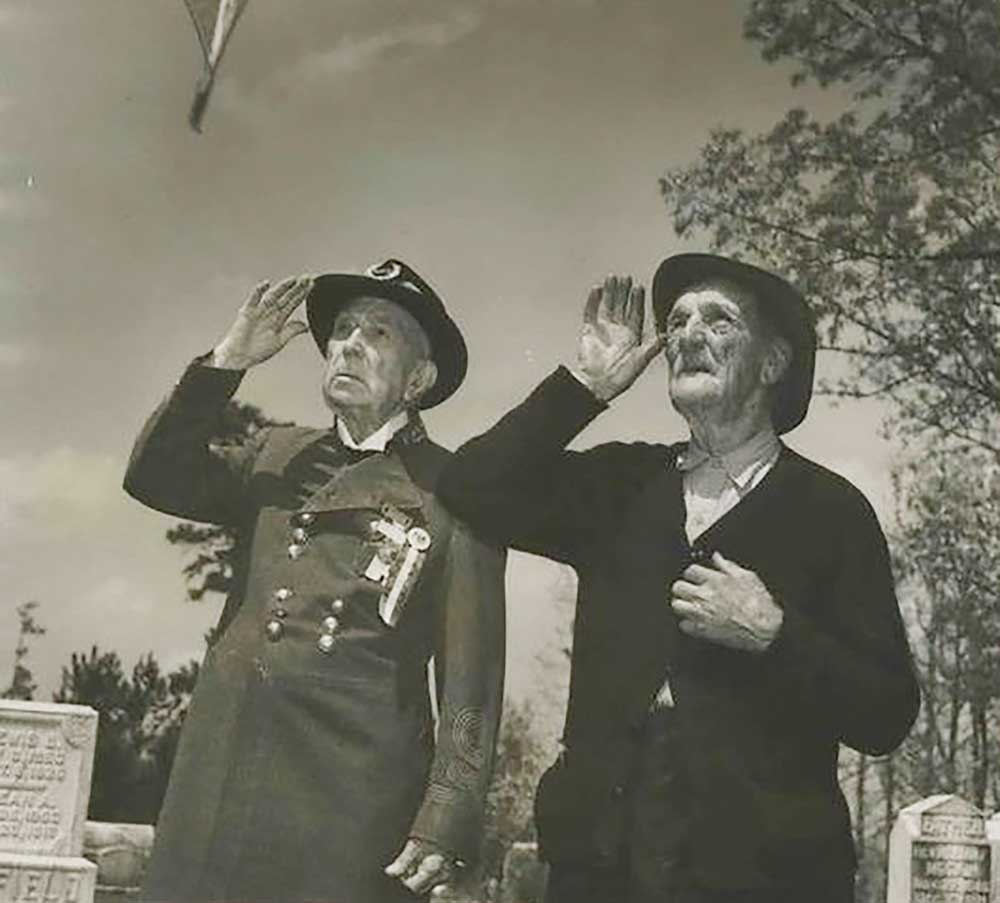
Leroy F. Box and Pleasant Riggs Crump,
St. Clair’s witnesses to history
Story by Robert Debter
Submitted Photos
Photos by Graham Hadley
They both hailed from St. Clair County in the early 1800s. One returned home from the Civil War to live out his life there. The other resettled in nearby Talladega County after the war. But Leroy F. Box of Ashville and Pleasant Riggs Crump of Ragland crossed paths as Confederate soldiers on a fateful day at Appomattox, Va., as eyewitnesses to history.
Soldier, educator, judge, lawmaker
Leroy Franklin Box’s story does not begin in St. Clair County, but in Kent, England, where his family originated. The Box family had a long history of patriotic military service to America from the American Revolution to the War of 1812 and the Seminole War.
He was born at Trout Creek (now Ragland) on April 9, 1837, to Allen and Mary ‘Polly’ Box. Both were from South Carolina and of the Methodist faith. Mrs. Box was described as “true in all relations of life” and “a faithful, devoted Christian.” At the time of his birth, St. Clair County was not even 19 years old, and its boundaries extended farther north into present day Etowah County.
Many of the county’s first, founding and most prominent families, as with his, the Ash and Dean families, came from South Carolina, with many others coming from Georgia (Inzer), North Carolina (Yarbrough), Tennessee (Looney) and Virginia (the Chandler and Cobb). The young Leroy received his early education from Professor Law and Pope and would teach school for several years.
In 1860, he became St Clair County’s first superintendent of education but also in 1860 came a very contentious and divisive presidential election in which the winner carried only 18 of 33 states (none were Southern) and received less than 40% percent of the popular vote. South Carolina seceded unanimously (169-0) on Dec. 20 and was followed by Mississippi (83-15) and Florida (62-7) on Jan. 9 and 10, 1861. Then, the hour of decision fell to Alabama and in Montgomery on Jan. 11, the Republic of Alabama was declared in a vote of 61-39.
Box joined Company A of the 10th Alabama Infantry, which had been organized at Montgomery and placed under command of Col. John Horace Forney. The regiment would see action beginning at the Battle of Dranesville in Fairfax County, Va., and continue to be engaged at many noteworthy battles, including: Gaines’ Mill, Frasier’s Farm, Second Manassas (Bull Run), Sharpsburg (Antietam), Fredericksburg, Gettysburg, the Wilderness, Spotsylvania and Petersburg.
All through the war, Lt. Box studied from law books which were always with him. He married Isabella Vandegrift on April 22, 1866, and journeyed to Calhoun County to continue his law education, all the while still teaching. After obtaining his license, Box returned to Ashville and entered into a partnership with Judge John W. Inzer.
He served one term in the Alabama Legislature, two terms as state superintendent of education and was later nominated, then elected, as judge of the Seventh District. Judge Box was a Mason and a member of Ashville Lodge 186.
His home, built in 1890 by his son-in-law, still stands proudly in Ashville on Box Hill. Its elegance and splendor are displayed and preserved by its owners Lavon and Pat Drake, who operate their business the Ashville House Quilt Shop, in the beautiful Victorian home.
On March 26, 1895, Judge Box passed from this life while holding court at Edwardsville, then the county seat of Cleburne County. The Southern Alliance newspaper eulogized him as “… one more good man gone on before to mansions in the skies.” His epitaph reads: “A just judge always dared to do right, a brave soldier, a true mason, a conscientious Christian devoted to his church and every worthy cause.”
‘The last Confederate veteran’
In October 1864, during the almost year-long Siege of Petersburg in Virginia, a 16-year-old boy from Greensport, who had been in Crawford’s Cove on Dec. 23, 1847, appeared and was placed in the ranks of Company A of the 10th Alabama.
The son of Robert and Martha (Hathcock) Crump had been inspired by a returning soldier in 1863 and had become determined to join the Army and take up the cause for which many Southerners, both high and low born, had fought and died.
After the War, Crump journeyed back to Alabama and began his new life in Talladega County.
He married Mary Hall on Sept. 19, 1872, and built a home for them near Lincoln in the Acker’s Chapel Community. The honorary title of “colonel” was bestowed to Crump, a member of the United Confederate Veterans, by President Harry Truman, a member of the Sons of Confederate Veterans, and he would be addressed by this title for the remainder of his life. In an apparent show of respect for Confederate veterans, he bestowed the honorary title much like Alabama Gov. Lurleen Wallace appointed Bob Hope an honorary lieutenant colonel in the Alabama State Guard.
Crump was a deacon at Refuge Baptist Church for almost 80 years and read the Bible through several times.
On April 26, 1950, Crump enjoyed a surprise visit from James W. Moore of Selma, commander-in-chief of United Confederate Veterans. The old soldiers clasped hands tightly and held their grip as they talked. Throughout the day they looked over old photos and reminisced of days long ago and old friends now passed.
His final birthday was one of tremendous celebration as friends, neighbors and members of the local Civitan Club gathered around a cake festooned with 104 candles. Col. Crump was made the first honorary member of the club.
His favorite scripture was from St. John 14:1, “Let not your heart be troubled,” and he once confided to a reporter, “I have spent these last few years sitting in a rocking chair and talking with the Lord.”
On Dec. 31, 1951, the flags of the past fell still, and the bugle calls became silent. There would be no more dreams of battle, nor seeing friends fall from rifle, cannon or bayonet. Crump, known as the “Last Confederate Veteran,” had passed away.
The United States flag draped his coffin.
APPOMATTOX
On April 9, 1865, two soldiers, one a lieutenant and the other a private, watched the man who had led the Army of North Virginia ride to the Appomattox Courthouse, dismount his horse and enter. Private Pleasant Crump, uttered to his commanding officer, “… when Gen. Lee comes out after surrendering, he’ll come out without his sidearms, sword or anything else.” Lt. Leroy F. Box, replied, “That won’t happen. He’ll come out the same way he went in.”
About 15 minutes passed, and Lee emerged. He stood for a moment on the front porch and, looking out into the distance, placed a fisted hand into the open palm of another. True to his commander’s word, Pvt. Crump observed that Gen. Lee was still wearing his sword, as he mounted Traveller, and began his journey.
“How did you know it would happen that way?” Crump asked. Box replied, “Lee and Grant both graduated from the U.S. Military Academy. They saw service on the Mexican border together. When secession came, Lee chose the South, and Grant chose the North. There could not have possibly been ill feelings between them.” l
“Northern politicians do not appreciate the determination and pluck (bravery) of the South, and Southern politicians do not appreciate the numbers, resources, and patient perseverance of the North. Both sides forget we are all Americans.” – Gen. Robert E. Lee











